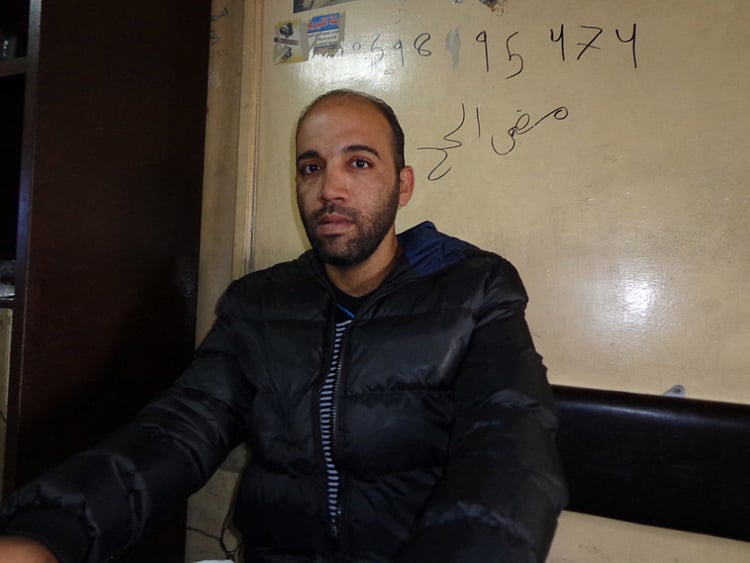Ramallah: Being a taxi driver is considered one of the more stressful occupations anywhere in the world. However, being a Palestinian taxi driver in the Israeli-occupied West Bank is more stressful than other parts of the world as Palestinian taxi drivers and their passengers are subjected to continual attacks by Israeli colonists and harassment by Israeli occupation forces.
The situation over the last few months has become particularly frightening for the drivers as violence in the West Bank escalates as the Palestinian uprising rages on unabated.
“The situation in the Occupied Palestinian Territory (OPT) has undoubtedly taken a turn for the worse, with the eruption of built-up Palestinian frustration from decades of colonial suppression,” said Palestinian human rights group Al Haq in an October press release.
Although colonist attacks and extrajudicial killings of Palestinians have become characteristic of the occupation, such incidents have surged in the past weeks, added Al Haq.
“Every day my drivers face stone-throwing by Israeli colonists, other times they have been threatened by colonists with weapons,” said Eyad Hamad the manager of Ramallah’s central service taxi garage.
“My drivers also face humiliation and delays by Israeli soldiers at the various military checkpoints in the West Bank. Sometimes the drivers are held up for no apparent reason and this makes a long trip even longer and more stressful,” Hamad told Gulf News.
“I’m in constant contact with my drivers and they also communicate regularly with other drivers to warn them of problems on the roads and which roads to avoid.”
Ahmad Jabari, 51, from Nablus has been a taxi driver for 28 years and is married with seven children. He services the Ramallah to Nablus road every day, a 48 km journey which takes just under an hour normally.
“Every day there is stone-throwing by the colonists. It is now scary driving on the roads and driving past the colonists. Even if they only break the windscreen it costs nearly $1000 to replace it. Sometimes the shattered glass also injures the drivers and some of the passengers,” Jabari told Gulf News.
Tamer Khatib, 50, is married with eight children and also from Nablus. He’s been a taxi driver for 15 years. His taxi came under attack several weeks ago at the Zatara checkpoint just south of Nablus. The windows were shattered.
“What is really frustrating is that there is nowhere we can turn for help. The Israeli police don’t care and the Palestinian police can’t take any action because most of the West Bank is not under their jurisdiction. Furthermore, there are no insurance companies who will pay for the damage so it comes out of our pockets,” Khatib told Gulf News.
However, Rafiq Hatab, 50, a married father of eight children who has been a taxi driver for 20 years is still traumatised from an incident which occurred during the second Palestinian Intifada from 2000 to 2004. Hatab’s forehead has a big dent.
“Israeli colonists threw stones at my taxi near Ramallah and I was hit in the head. I lost control of the vehicle and it was involved in an accident during which it overturned. I sustained severe head injuries as a result,” Hatab told Gulf News.
“I was in the Intensive Care Unit for one month and was housebound for another five years because of requiring physical therapy and being too traumatised to drive.
Gulf News accompanied a service taxi, which accommodates seven passengers, from Ramallah to Hebron, one of the most volatile routes in the West Bank.
The taxi driver was on the phone to colleagues who had travelled to Hebron just half an hour earlier and he was already stressed before the 1.5 hour journey of 69 km even began.
There was trouble around the Israeli colony of Gush Etzion just north of Hebron. Colonists were protesting at the side of the road.
Hebron has witnessed the lion’s share of violence between Palestinians and Israeli soldiers and colonists with numerous stabbing and shooting attacks taking place over the last seven weeks.
As we set off, the driver debated whether to avoid the main freeway that connects to Hebron and take an alternative and more circuitous route through the Hebron valleys.
He ultimately decided on the former due to time constraints. On the way to Hebron we were stopped at three different temporary Israeli military flying checkpoints where traffic backed up for kilometres.
This was before we even reached the first official Container checkpoint near Bethlehem. These delays added another hour to the journey.
As we approached Gush Etzion dozens of colonists were demonstrating, against Palestinians and several recent knifings, holding placards as they danced.
No stones were thrown this time. However, they spat towards the taxi and gave us the middle finger.
Even if they had been violent there was zero chance of them being brought to justice.
“As the occupying force, Israel must protect the Palestinians in the West Bank. However, the Israeli authorities neglect to fulfil this responsibility and do not do enough to prevent Israeli civilians from attacking Palestinians, their property and their lands,” said Israeli rights group B’tselem.
“The undeclared policy of the Israeli authorities in response to these attacks is lenient and conciliatory. Perpetrators are rarely tried, and many cases are not investigated at all or are closed with no operative conclusions.”
-Mel Frykberg is a freelance journalist based in Ramallah
Sign up for the Daily Briefing
Get the latest news and updates straight to your inbox
Network Links
GN StoreDownload our app
© Al Nisr Publishing LLC 2026. All rights reserved.
